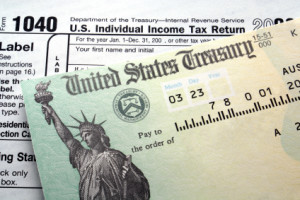 Today’s top story: Getting debt collectors off of your credit report is about to get easier. Also in the news: How to change a bad spending habit, the worst financial mistakes you can make during a divorce, and the worst markets in America to buy a home.
Today’s top story: Getting debt collectors off of your credit report is about to get easier. Also in the news: How to change a bad spending habit, the worst financial mistakes you can make during a divorce, and the worst markets in America to buy a home.
Why Kicking Debt Collectors Off of Your Credit Report Just Got Easier
Changes are coming to your credit report.
To Change a Spending Habit, Focus on Cause and Effect
Tiny changes could make a big difference.
3 Worst Financial Mistakes You Can Make in a Divorce
How to protect your best interests.
The 10 Worst Markets in America to Buy a Home Right Now
Where you buy matters.



